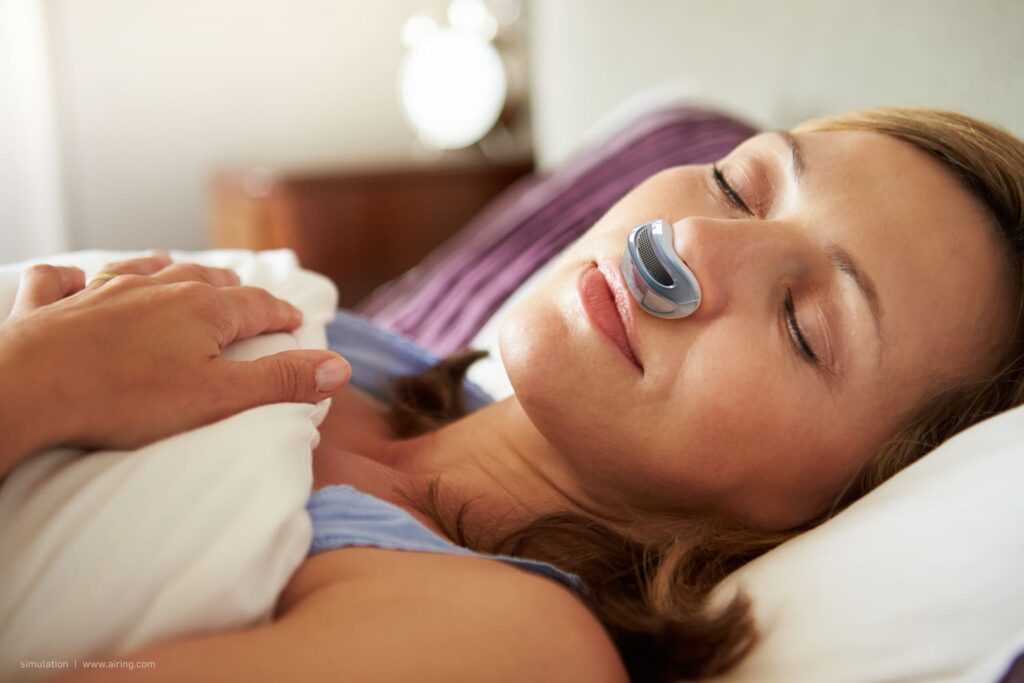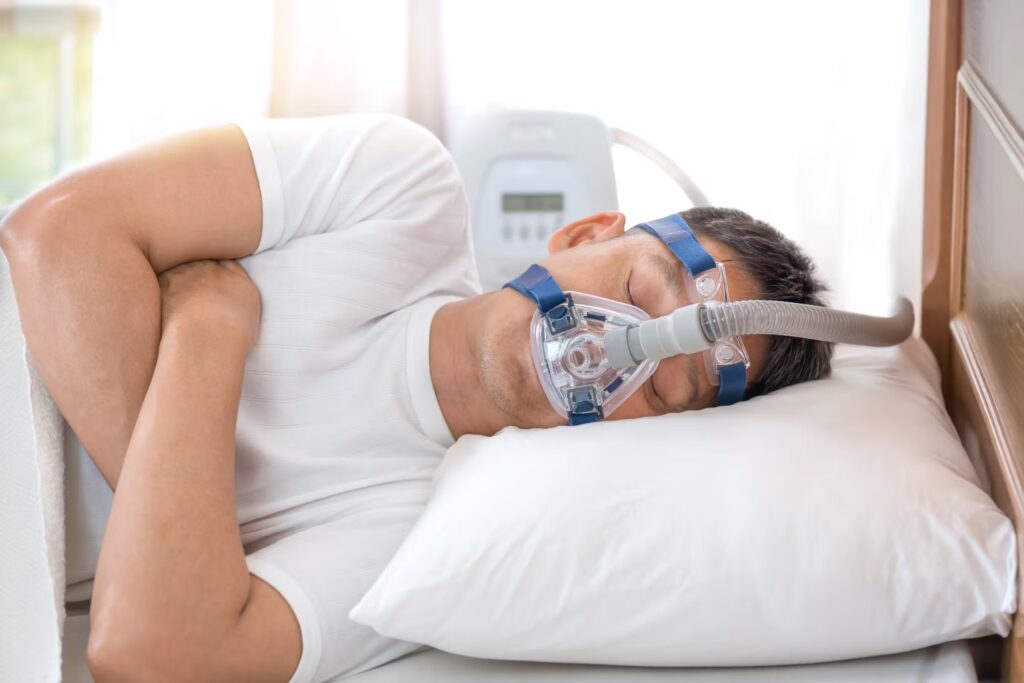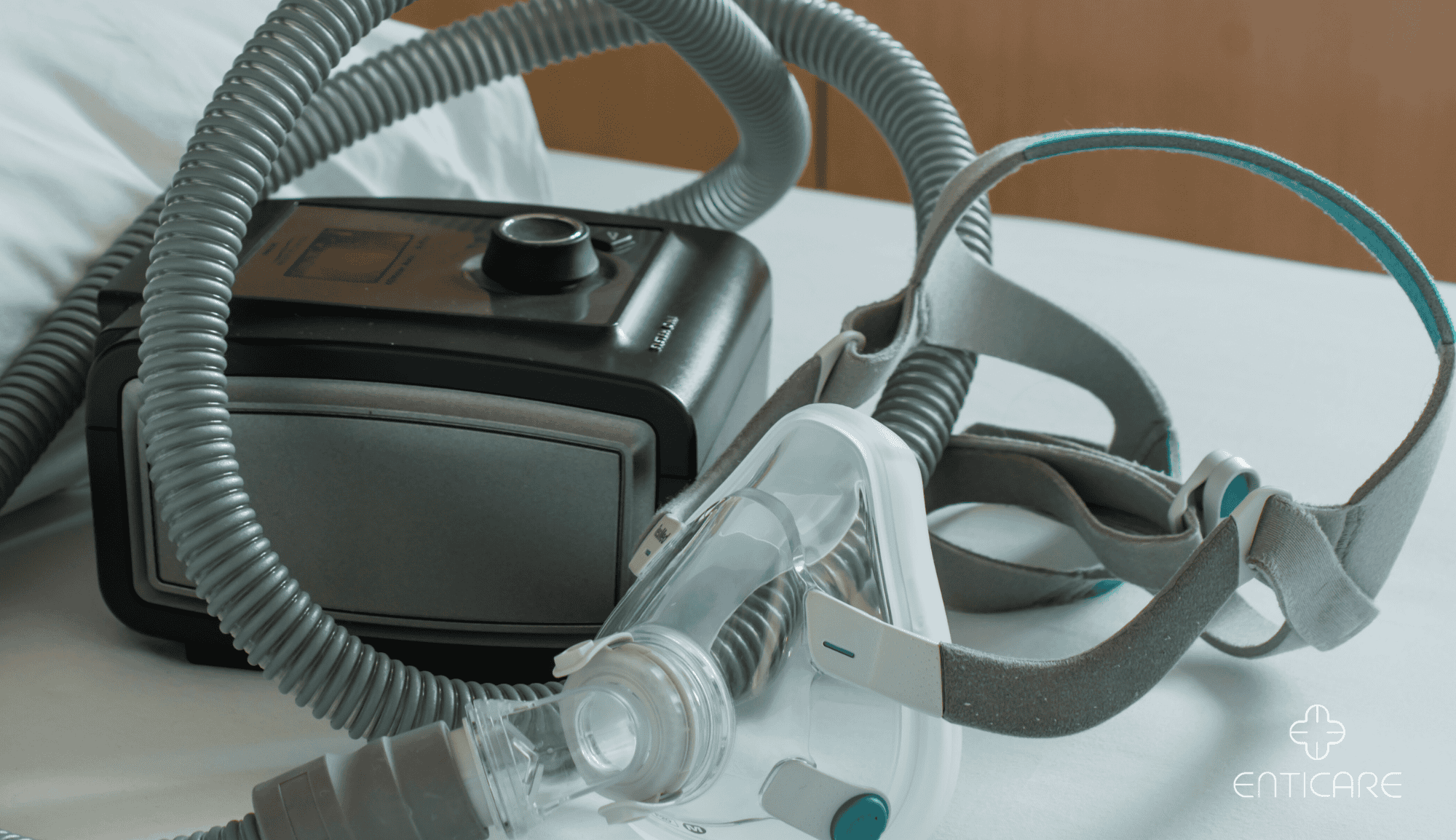Obstructive Sleep Apnea (OSA) affects millions of individuals worldwide, disrupting peaceful sleep and potentially leading to serious health complications. This sleep disorder causes repeated breathing interruptions throughout the night, with each pause lasting from seconds to minutes. The impact extends beyond poor sleep quality – untreated OSA increases the risk of:
- Cardiovascular disease
- High blood pressure
- Type 2 diabetes
- Depression
- Cognitive decline
Effective treatment remains crucial for managing OSA and preventing these associated health risks. Among available treatment options, Continuous Positive Airway Pressure (CPAP) therapy stands as the gold standard for sleep apnea relief. CPAP machines deliver a steady stream of pressurised air through a mask, keeping airways open during sleep.
Selecting the right CPAP machine from trusted sources proves essential for successful treatment outcomes. With numerous options available in the market, making an informed decision can feel overwhelming. However, this comprehensive guide aims to equip readers with essential knowledge for purchasing CPAP machines with confidence. From understanding key features to identifying reputable suppliers, this resource helps navigate the path toward effective sleep apnea relief through trusted CPAP options like those available at Air Liquide Healthcare, which offers a wide selection from top brands including ResMed, BMC, and Fisher & Paykel.

Understanding Sleep Apnea and Its Treatment Options
Obstructive Sleep Apnea (OSA) occurs when throat muscles intermittently relax during sleep, blocking the airway and disrupting normal breathing patterns. This disruption triggers a complex cascade of physiological responses, leading to characteristic symptoms:
Effective sleep apnea management requires a comprehensive approach that extends beyond buy CPAP machine. The path to restful sleep combines:
Common OSA Symptoms:
- Loud, persistent snoring
- Witnessed breathing pauses during sleep
- Abrupt awakenings with gasping or choking
- Morning headaches
- Excessive daytime sleepiness
- Difficulty concentrating
- Irritability and mood changes
- High blood pressure
Diagnostic Process
Sleep specialists employ two primary methods to diagnose OSA:
- Polysomnography (PSG)Conducted in specialised sleep laboratories
- Monitors brain waves, eye movements, heart rate
- Measures blood oxygen levels
- Records breathing patterns and body movements
- Provides comprehensive sleep analysis
- Home Sleep Testing (HST)Portable monitoring devices
- Tracks breathing patterns, heart rate, blood oxygen
- Convenient alternative for suitable candidates
- Less comprehensive but more accessible
Treatment Options
Sleep apnea treatment varies based on severity and individual patient factors:
Lifestyle Modifications
- Weight management
- Side-sleeping position
- Alcohol reduction
- Smoking cessation

Medical Interventions
- Oral appliances for jaw advancement
- Upper airway surgery
- Hypoglossal nerve stimulation
- Positional therapy devices
Specialised Treatments
- Custom-fitted dental devices
- Palatal implants
- Soft tissue removal
- Jaw repositioning
For those experiencing severe symptoms of OSA, home oxygen machines may provide some relief by improving breathing during sleep. The severity of OSA, patient preferences, and medical history guide treatment selection. A sleep specialist can determine the most appropriate treatment pathway through careful evaluation and consultation.
Why Choose a CPAP Machine?
CPAP machines are the best option for treating sleep apnea. They provide a steady stream of air to keep your airways open while you sleep. These devices work by pulling in air from the room, filtering it, and then delivering a specific level of pressure through a mask that you wear during the night. Read more about devices at https://bioinnovation.engineering.uconn.edu/technologies/bio-devices-technology/
The Science Behind CPAP Effectiveness
A CPAP machine works by creating a splint in your upper airway, preventing the soft tissues from collapsing. This constant pressure keeps your breathing passage open, allowing air to flow freely and ensuring normal breathing patterns throughout the night.
Proven Health Benefits
Research shows that patients who use CPAP therapy experience significant improvements in various health aspects:
- Lower blood pressure levels
- Reduced risk of heart-related problems
- Increased alertness during the day
- Enhanced cognitive abilities
- Better emotional stability
- Decreased likelihood of accidents at work and on the road
CPAP vs Alternative PAP Devices
There are different types of Positive Airway Pressure (PAP) devices available, each designed to meet specific patient needs:
1. APAP (Automatic Positive Airway Pressure)
- Automatically adjusts pressure based on breathing patterns
- Ideal for patients requiring varying pressures throughout the night
- Particularly useful for position-dependent sleep apnea
2. BiPAP (Bi-level Positive Airway Pressure)
- Delivers different pressures for inhalation and exhalation
- Beneficial for patients with high pressure requirements
- Suitable for those with certain cardiac conditions
3. ASV (Adaptive Servo-Ventilation)
- Treats complex sleep apnea and central sleep apnea
- Provides breath-by-breath pressure adjustment
- Recommended for patients with heart failure-related breathing issues
Standard CPAP machines are still the most commonly used devices for treating Obstructive Sleep Apnea (OSA). They have a proven track record, are cost-effective, and easy to use. Clinical studies consistently show that when used correctly, CPAP therapy eliminates almost all episodes of apnea during sleep.
Buying CPAP Machines with Confidence: What to Look For
Selecting a CPAP machine requires careful consideration of trusted suppliers and essential features. Reputable providers, such as Air Liquide Healthcare, maintain strict quality standards and offer comprehensive support services for CPAP users.
Key Features to Consider:
- Pressure Range: Select machines with appropriate pressure settings matching prescribed requirements
- Noise Level: Look for devices operating at 30 decibels or lower for quiet operation
- Size and Portability: Consider compact designs for travel convenience
- Data Recording: Built-in memory cards track usage patterns and therapy effectiveness
- Smart Features: WiFi connectivity enables remote monitoring and automatic pressure adjustments
- Display Interface: Easy-to-read screens with intuitive controls enhance user experience
Essential Accessories:
- Heated humidification systems
- Compatible mask options (nasal, full-face, hybrid)
- Proper tubing length and diameter
- Replaceable filters
- Power backup options
Trusted suppliers provide comprehensive warranty coverage, technical support, and replacement parts availability. Professional consultation services help match specific sleep apnea needs with appropriate equipment options. Regular maintenance programs ensure optimal device performance and longevity.
Healthcare providers like Air Liquide offer personalised fitting services, ensuring proper mask sizing and comfort adjustments. Their extensive network of service locations provides convenient access to ongoing support and equipment maintenance. Click here to find more about comfort.
Common Challenges with CPAP Use and How to Overcome Them
CPAP therapy adaptation requires patience and proper guidance. Users often encounter specific challenges that can affect their treatment compliance and comfort. Here are common issues and practical solutions:
Mask Discomfort and Air Leaks
- Adjust headgear straps for a balanced fit – not too tight or loose
- Try different mask sizes or styles, such as those available in the CPAP masks collection (nasal pillows, full face, hybrid)
- Use mask liners or cushions to prevent skin irritation
- Position the mask while lying down in sleeping position
Nasal Congestion and Dryness
- Add a heated humidifier to moisturise airways
- Use saline nasal spray before bedtime
- Consider a full face mask during periods of congestion
- Maintain optimal bedroom temperature and humidity levels
Dry Mouth and Throat
- Check for mouth breathing during sleep
- Try a chin strap to keep mouth closed
- Increase humidifier settings under medical guidance
- Stay hydrated throughout the day
Noise Concerns
- Place the CPAP machine on a soft surface
- Keep filters clean and replace as recommended
- Position the device away from the bed
- Check for loose connections or damaged parts
Machine Pressure Issues
- Use ramp feature to gradually increase pressure
- Request pressure adjustment from sleep specialist
- Consider auto-adjusting devices (APAP)
- Practice relaxation techniques during initial use
Regular maintenance and proper cleaning of CPAP equipment helps prevent many common issues. For instance, using an Aerobika device with manometer can help track your pressure in real time. Sleep specialists can provide personalised solutions based on individual needs and concerns.
Ensuring Long-Term Success with Your CPAP Machine
Regular medical follow-ups create the foundation for successful long-term CPAP therapy. These appointments allow healthcare providers to:
- Monitor treatment effectiveness through sleep data analysis
- Assess and adjust pressure settings for optimal comfort
- Evaluate mask fit and recommend replacements when needed
- Check equipment functionality and maintenance
- Address any persistent side effects or concerns
A structured follow-up schedule typically includes:
- Initial follow-up within 2-4 weeks of starting therapy
- Quarterly check-ins during the first year
- Annual reviews after establishing stable therapy
Remote monitoring capabilities in modern CPAP machines enable healthcare providers to track:
- Usage patterns
- Mask leak rates
- Breathing events per hour
- Treatment pressure effectiveness
Professional support services enhance therapy success through:
- 24/7 Technical Support: Immediate assistance for equipment issues
- Educational Resources: Access to training materials and user guides
- Compliance Tracking: Regular progress reports and therapy adjustments
- Equipment Maintenance: Scheduled cleaning and parts replacement reminders
Sleep specialists recommend documenting symptoms and concerns between appointments to ensure comprehensive care during follow-up visits. This proactive approach helps identify and resolve potential issues before they impact treatment effectiveness.
Alternatives When CPAP Isn’t Suitable
While CPAP therapy remains the gold standard treatment for sleep apnea, some patients find it challenging to adapt to the device. Medical professionals offer several alternative treatment options:
1. Oral Appliances
- Custom-fitted dental devices that reposition the jaw and tongue
- Effective for mild to moderate sleep apnea
- Less intrusive than CPAP machines
- Ideal for travel and portable use
2. Surgical Interventions
- Uvulopalatopharyngoplasty (UPPP) – removes excess tissue in the throat
- Maxillomandibular advancement – repositions the jaw
- Hypoglossal nerve stimulation – implanted device to control tongue movement
- Nasal surgery to correct structural abnormalities
3. Positional Therapy
- Special pillows or devices that prevent back sleeping
- Beneficial for position-dependent sleep apnea
- Combined with other treatments for enhanced results
4. Lifestyle Modifications
- Weight management programmes
- Smoking cessation support
- Alcohol reduction strategies
- Sleep position training
Each alternative requires careful evaluation by healthcare professionals to determine suitability based on individual patient factors, including severity of sleep apnea, anatomical considerations, and overall health status. Regular monitoring ensures the chosen treatment maintains its effectiveness in managing sleep apnea symptoms.
Conclusion
- Regular consultations with healthcare providers
- Consistent device maintenance and cleaning
- Healthy lifestyle modifications, including:
- Weight management
- Regular exercise
- Proper sleep hygiene
- Reduced alcohol consumption
Making informed decisions about CPAP equipment starts with selecting trusted suppliers who prioritise quality and patient support. Air Liquide Healthcare’s extensive network of 152 diagnostic and therapy service locations demonstrates the commitment to accessible, professional care for sleep apnea patients.
The journey to better sleep begins with understanding treatment options and choosing the right equipment. Armed with knowledge about CPAP therapy, potential challenges, and available alternatives, patients can confidently select appropriate sleep apnea solutions that align with their specific needs and lifestyle requirements.
Sleep apnea relief is achievable through the right combination of medical guidance, quality equipment, and personal commitment to treatment.

